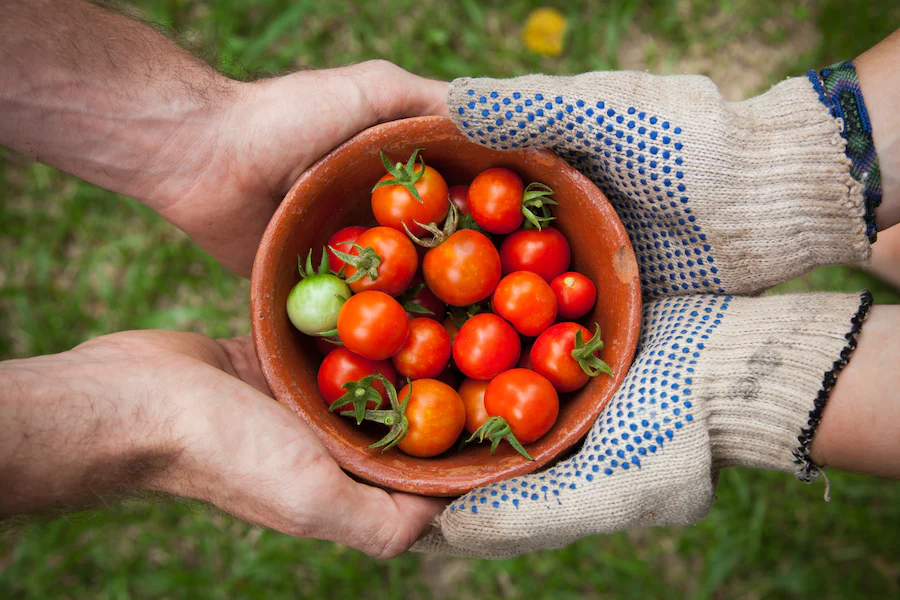A reflection on 2 Corinthians 8:1-15 for Sunday, March 12, 2023 at Mosaic Baptist Church, Gungahlin.

We want you to know, brothers and sisters, about the grace of God that has been granted to the churches of Macedonia; for during a severe ordeal of affliction, their abundant joy and their extreme poverty have overflowed in a wealth of generosity on their part. For, as I can testify, they voluntarily gave according to their means, and even beyond their means, begging us earnestly for the privilege of sharing in this ministry to the saints— and this, not merely as we expected; they gave themselves first to the Lord and, by the will of God, to us, so that we might urge Titus that, as he had already made a beginning, so he should also complete this generous undertaking among you. Now as you excel in everything—in faith, in speech, in knowledge, in utmost eagerness, and in our love for you—so we want you to excel also in this generous undertaking.
I do not say this as a command, but I am testing the genuineness of your love against the earnestness of others. For you know the generous act of our Lord Jesus Christ, that though he was rich, yet for your sakes he became poor, so that by his poverty you might become rich. And in this matter I am giving my advice: it is appropriate for you who began last year not only to do something but even to desire to do something—now finish doing it, so that your eagerness may be matched by completing it according to your means. For if the eagerness is there, the gift is acceptable according to what one has—not according to what one does not have. I do not mean that there should be relief for others and pressure on you, but it is a question of a fair balance between your present abundance and their need, so that their abundance may be for your need, in order that there may be a fair balance. As it is written,
‘The one who had much did not have too much,
and the one who had little did not have too little.’
2 Corinthians 8:1-15 (NRSVA)
Paul has a testimony to share – and it is not his.
The Macedonian church gave generously to the collection entrusted to Titus. This was not because they were abundantly financially rich. On the contrary, it seems that had their own challenges making ends meet.
And yet, the Macedonians knew such ‘joy’ that they were able to see the need of others and contribute ‘in a wealth of generosity’. They gave, considering it a ‘privilege’ to contribute to the relief of the need of others.
A powerful, surprising witness to faith in practice.
I love the way Paul refuses to resort to making his request for a Corinthian contribution into a ‘command’. If ever there was a place in the New Testament for a justified appeal to the Mosaic law’s ‘tithe’ (or tenth) this is it.
Yet the Apostle, who knows the law so well, does not even mention the giving of a percentage.
Rather, Paul appeals to the blessing both given and received by the Macedonian community; to the ‘generous act of our Lord Jesus’, and; to the present unequal distribution of resources. Staggeringly, Paul claims to be only offering ‘advice’ in responding to this situation.
For one so versed in the law, this is a very strange new way of seeking fiscal assistance. It asks for a rational consideration of the blessing of God – both materially and spiritually – and then leaves the outcome up to the individual.
Somehow I am left with a deep sense that Paul is completely content to leave outcome up to the Spirit of God speaking into the heart of the community. He invites. He reasons. He theologises.
And then he trusts.
Never, however, does he resort to legalism or manipulation. Rather, he simply tells the Macedonian story and invites the Corinthian church to consider their means and give accordingly.
It amounts to a beautiful picture of grace, generosity, and trust in the voice of the Spirit.
Conversation Starters:
What do you learn about the Macedonian experience of generosity in this passage? How might this inspire your own generosity?
How do you see Paul appealing to the big story of God’s incarnation in the person of Jesus as he urges the Corinthian people to a deeper generosity here? Why do you think the apostle chooses to use this as a foundation to appeal for their gift?